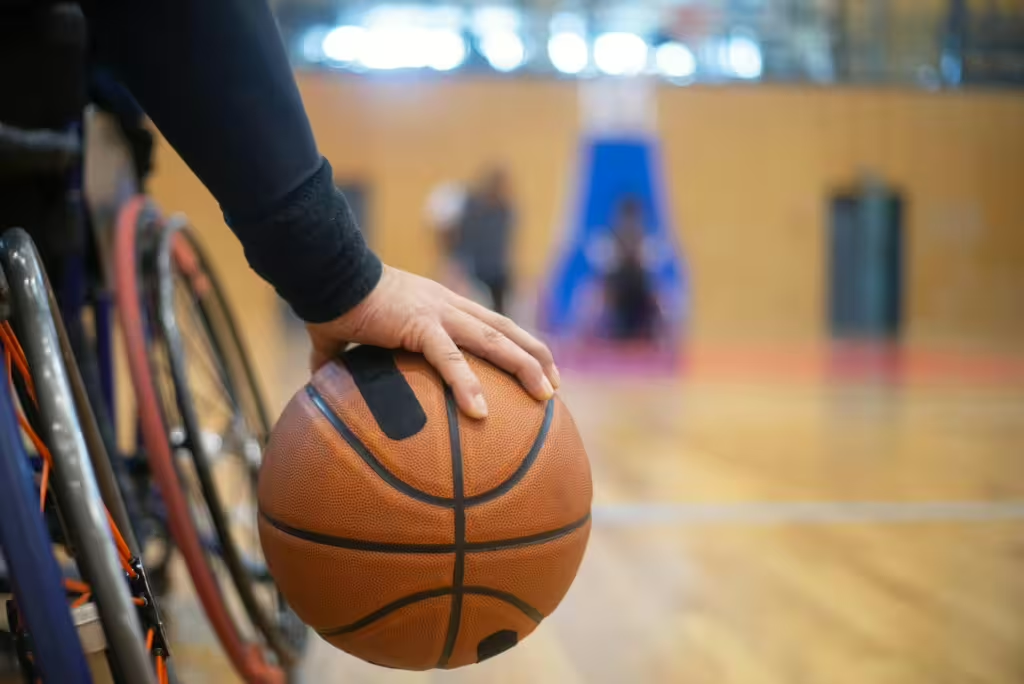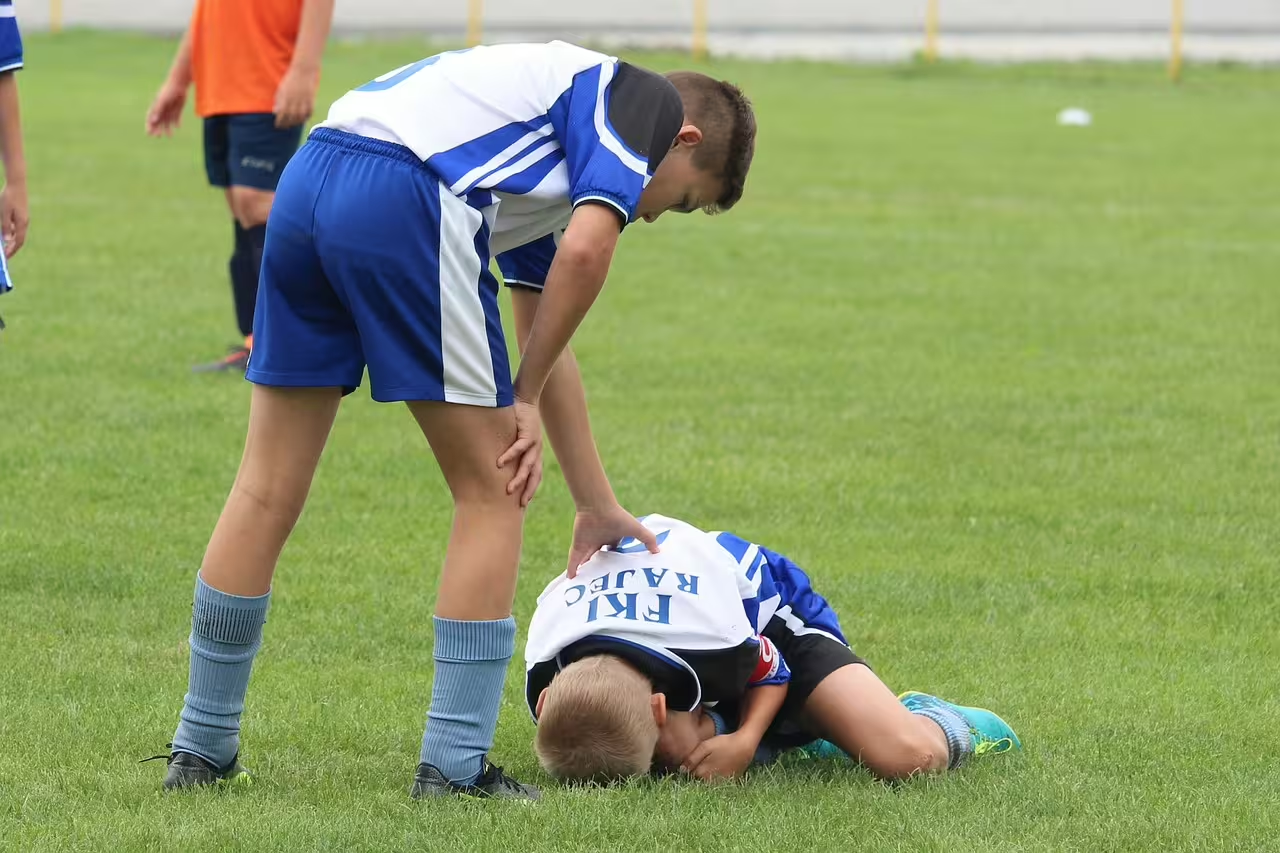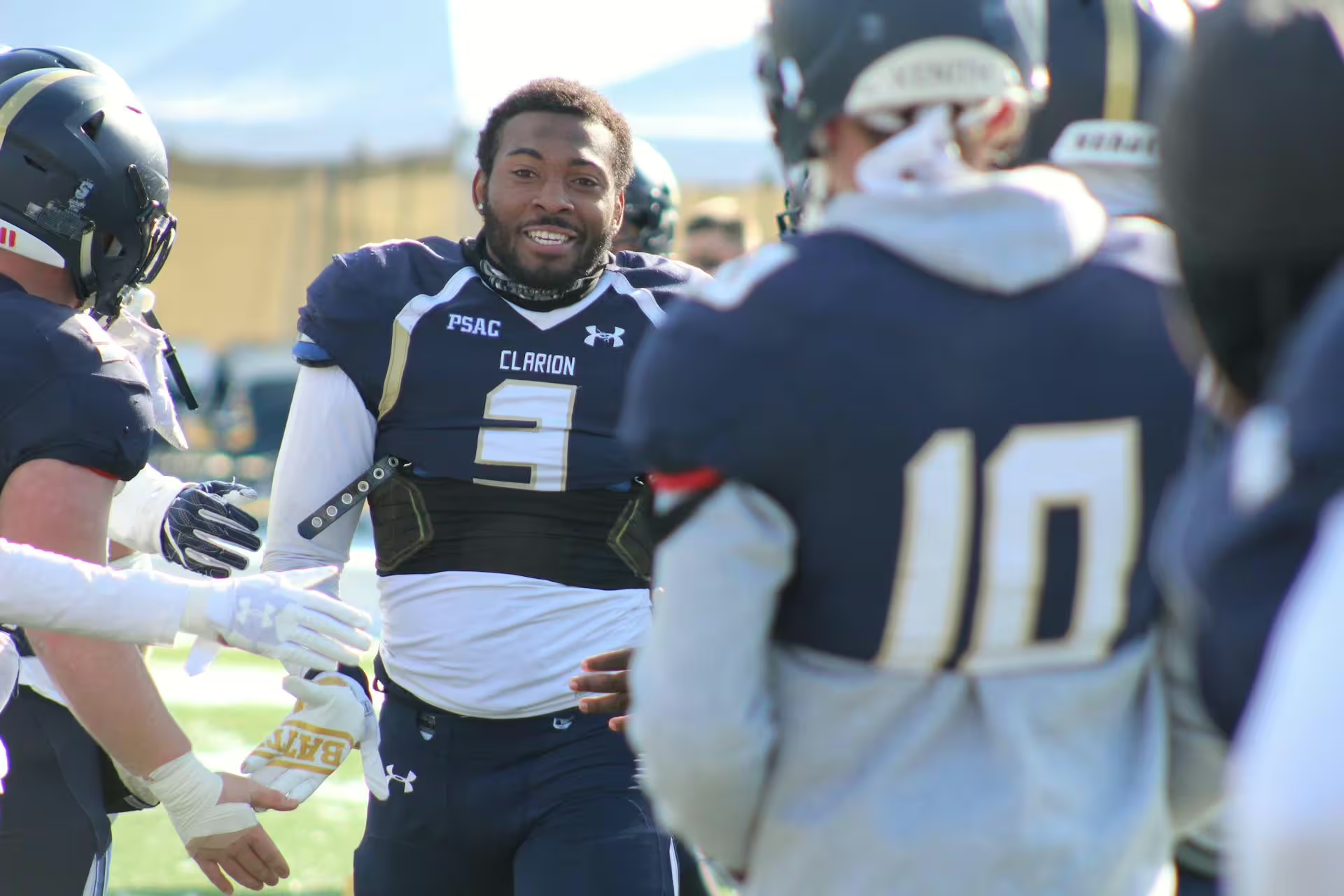Sports and physical activities can offer incredible benefits to children with disabilities, just as they do for all children who have the opportunity to engage with them from a young age. Whether it is improved physical health, emotional well-being, enhanced social connections, and even opportunities to develop more independence and self-confidence, sports may be exactly what the doctor ordered. However, parents of children with special needs often struggle to find the right adaptive sports programs for their child.
It’s no wonder; this process can sometimes feel overwhelming for parents, who might not even know where to begin. That’s why we have put together articles like these, as a means of offering parents some measure of guidance when it comes to navigating the difficult world of youth sports. In this article, we will endeavor to make this process easier for parents. We will providing parents with a multitude of practical tips, insights, and resources to help them navigate the world of adaptive sports on behalf of their child.
What Are Adaptive Sports?
Adaptive sports are defined as traditional sports that have been modified in some way so that they can meet the needs of individuals with physical, sensory, or intellectual disabilities. These sports usually differ from traditional ones in terms of equipment as well. Adaptive sports tend to utilize specialized equipment or altered rules in order to ensure maximum inclusivity and accessibility. One example that many readers may be familiar with is wheelchair basketball but there are many other sports that have been adapted to fit the needs of disabled players, including to adaptive skiing, sled hockey, equestrian sports, or adaptive cycling.
No matter what your child’s interests, abilities, or perceived limitations, there are plenty of sports out there that can be adapted to suit their specific needs. One of the best facets of adaptive sports is that they are not just about competition. These activities are about building confidence in children, fostering a sense of community, and encouraging lifelong habits of physical activity that will benefit any child, disabled or not. The very concept of adaptive sports is about creating a level playing field where children can fully engage, learn, and grow while doing the most important thing, having fun!
When it comes to meeting the needs of their participants, adaptive sports emphasize the importance of tailored approaches. Coaches, staff, parents, and participants are meant to work together to ensure that each player feels included and empowered by the experience. No one involved in these sports wants anyone to feel anxious, lost, or left behind, which is why much of this tailored mentality is done through individualized training plans and specialized gear. Additionally, there tends to be an element of additional support given during practice, allowing coaches and participants to prioritize the unique needs of each child. This commitment to customization is one of the best things about adaptive sports.
Why Are Adaptive Sports Important?
Engaging in sports, particularly in adaptive sports that feel almost designed to fit your child’s challenges, can have a transformative impact on a young person’s life. Here are some of the key benefits of these sports:
Physical Health: By now, most parents understand that children who engage in regular physical activity have improved cardiovascular health, strength, and flexibility. For children with disabilities, adaptive sports offer other these and other benefits as well, like balance, endurance, and coordination. These sports provide kids with a safe and structured environment, allowing them to achieve these benefits while addressing any physical limitations they might possess.
Emotional and Mental Well-Being: Sports has been proven to help reduce stress, anxiety, and depression in children. It also boosts a child’s self-esteem, offering up a tangible sense of accomplishment that comes with learning a new skill. That self-confidence can arise from teamwork as well, as a child who feels that they contributed to the success of their team often feels better about their own impact on the world around them. For children who sometimes feel more impacted by the world than impactful, this confidence can prove to be a mental game-changer, offering them proof of what folks have been telling them for their whole lives; that they can do anything they set their mind to. Additionally, adaptive sports often include therapeutic elements for children with disabilities that encourage emotional resilience and personal growth.
Social Connections: Participating in team sports is good for kids. Being on a team, learning to talk and play, laugh and cry with peers is an essential part of growing up. Team sports foster friendships and a sense of belonging that other social activities don’t always fully achieve. In this way, adaptive sports programs are a hub for building meaningful relationships with their peers. Remember, adaptive sports contain children of varying degrees of disability, but all of them tend to share similar experiences due to their challenges. These connections are meaningful and will often extend beyond the playing field, creating a supportive network for children, as well as their families.
Skill Development: As with any youth sports, adaptive sports teach the vital elements of goal setting, teamwork, and perseverance to children. These skills will benefit your child in all areas of life and will help them to realize that they can push past their own perceived limitations to discover their true potential. Whether your child is learning how to strategize during a game or practicing consistency in training, these lessons may well prove to be invaluable to them down the line.
Independence: As parents, many of us struggle with wanting our children to learn the independence they will need to succeed in life. Those of us who have children with disabilities fight mightily against the desire to see them grow more independent and the fear that in doing so, we reduce their need for our presence in their lives. This is not a bad thing, it is a natural response to being a parent. This is why, for many children, adaptive sports offers up a rare opportunity for them to challenge themselves and experience independence in a supportive environment; one that is outside of parental purview. The autonomy that children gain through sports and group activities can lead to greater confidence, which will ultimately help them tackle other areas of life, from academics to social interactions. By overcoming obstacles on the sports field, children often develop a can-do attitude that serves them well and helps them grow.
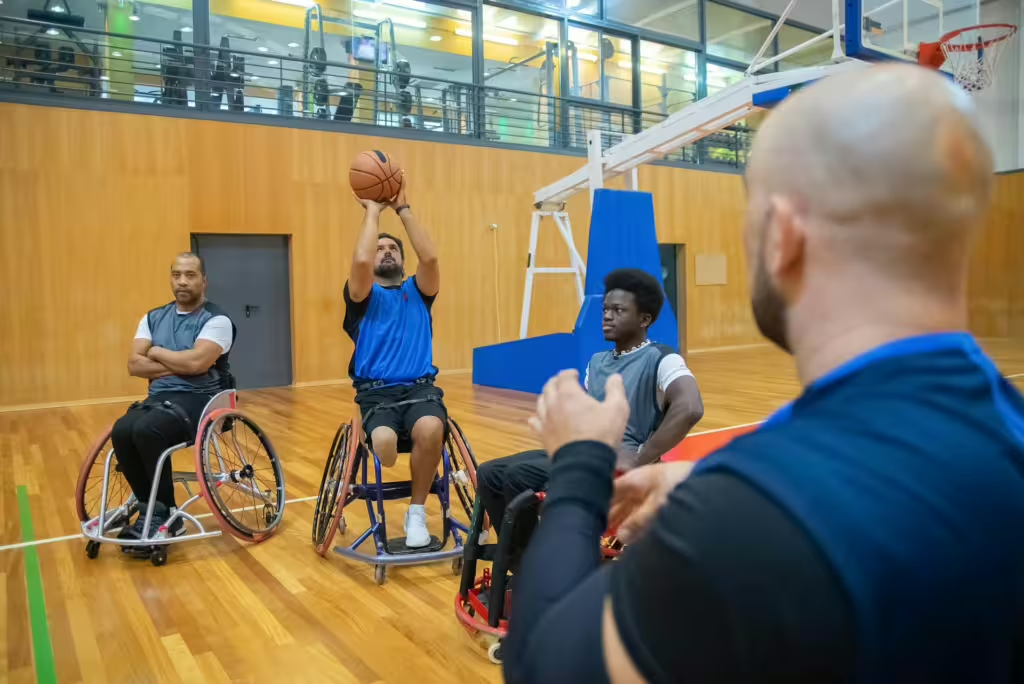
How to Begin the Search for Adaptive Sports Programs
Finding the right adaptive sports program will ultimately involve some research and planning on your part. Here are the steps to guide parents to the right fit:
Understand Your Child’s Interests and Abilities
Talk to your child about what they enjoy and what kind of sport they might like to try. Open communication is the key to any good relationship and for children with disabilities, this in and of itself might prove difficult, but most children will find some way to make their desires known. Whatever the case might be, bear in mind that some children gravitate toward competitive team sports, while others prefer individual activities like swimming or archery. When deciding on a sport, consider your child’s physical abilities, their sensory preferences, and their personality to identify what could be the best fit for them.
As an added tip, try to observe how your child interacts with physical activities in their daily life. Do they show a natural inclination for running, throwing, or swimming? If they do, use these observations as a means of guiding your search. Remember, the goal in all this is to find something they’ll enjoy and commit to over time, so keeping their interests front and center is key. Above all else, make sure they are motivated to engage with the sport, fair weather interest is not ideal here, and it may impede their progress in a big way down the line.
Consult with Experts
If your child has doctors, therapists, or teachers in their life, and chances are they do indeed, then use them to your advantage. These experts can prove to be valuable resources. Their intimate knowledge of your child’s abilities and their limitations can be key in finding the right fit. Moreover, they may be able to recommend local organizations or programs that fit your child’s needs.
Occupational therapists, for example, might recommend activities that enhance a child’s fine motor skills, while a physical therapist may suggest sports that build up your child’s core strength and balance. Opinions may differ, of course, but bear in mind that these professionals sometimes have insight into how physical activities can complement therapeutic goals or even support developmental milestones, so take their advice to heart.
Don’t hesitate to ask for more detailed advice, recommendations, or even a written recommendation if that is what is required. These forms and information packets are often good resources for sports program coordinators.
Research Local Programs
Parent can begin their research at the local level by looking into community centers, YMCAs, schools, and sports clubs that offer adaptive sports for children with special needs. You might not know it yet, but it is highly likely that a few organizations in your area specialize in programs for children with disabilities. When that fails there are always the big national ones, such as:
- Special Olympics: This organization offers year-round sports training and competitions for individuals with intellectual disabilities.
- Challenged Athletes Foundation (CAF): The CAF provides grants and opportunities for athletes with physical disabilities.
- Disabled Sports USA: This excellent program, otherwise known as Move United, offers adaptive sports programs nationwide.
Explore National and Regional Organizations
If you’re looking to go bigger, some national organizations have local chapters or affiliates that can help parents connect with resources in their area. Examples include:
- USA Paralympics: Supports the development of Paralympic athletes and adaptive sports at the grassroots level.
- National Center on Health, Physical Activity and Disability (NCHPAD): Offers resources to improve health and wellness through physical activity.
Reaching out to these organizations can open doors to a wider world of adaptive sports. Parents can get access to events, training opportunities, and funding sources that might not be available at a local or grassroots level. That said, don’t overlook smaller resources when you find then, they might just offer an meaningful connection that those larger ones cannot equal.
Utilize Online Resources
Obviously, there are dozens of websites, social media groups, and online forums out there to help parents of disabled children connect to programs, resources, and one another. These spaces offer parents a way to find those in similar situations and get recommendations. When in doubt, try searching for adaptive sports programs in your area or joining groups dedicated to families of children with disabilities.
What to Look for in an Adaptive Sports Program
When evaluating potential programs, parents should keep these factors in mind:
Inclusivity and Accessibility
Parents need to ask themselves a few questions when evaluating adaptive sports for their children, first among them; does the program offer accommodations to meet my child’s needs? If this is what you are pondering, consider these factors: the venue’s accessibility, availability of specialized equipment, and degree of staff training. How long has the staff been working with children with disabilities? How much experience does the organization have as a whole? Remember, an inclusive program should actively involve parents in planning and be open to feedback. At the same time, these programs ought to be flexible about adapting rules or equipment to suit the needs of their athletes.
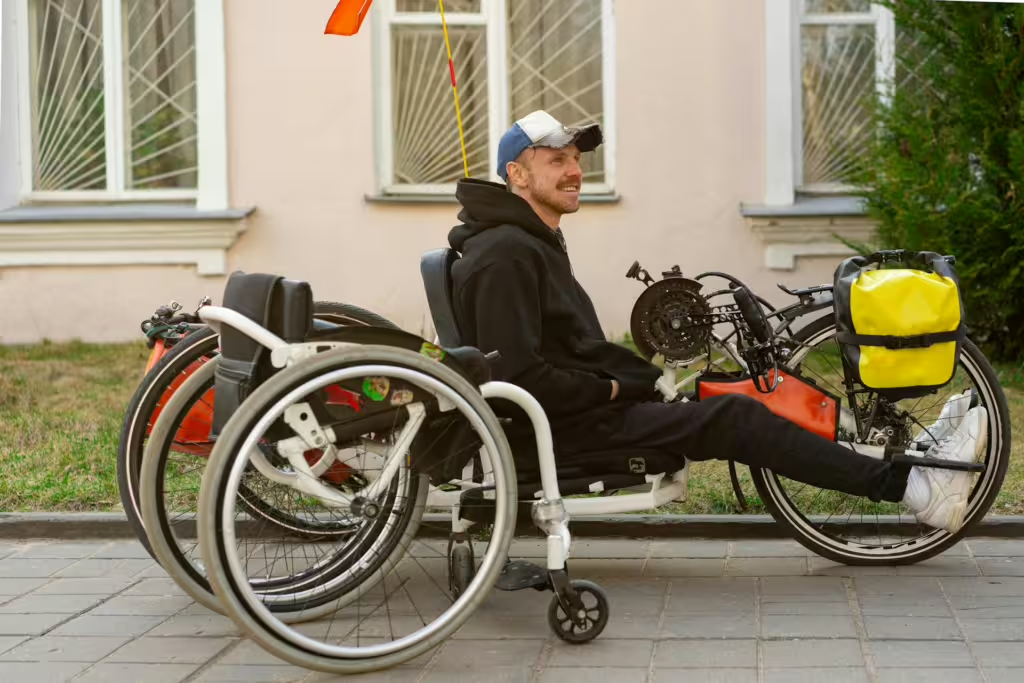
Qualified Coaches and Staff
Look for programs that have experienced and certified coaches. Experienced individuals will better understand adaptive sports be able to provide young athletes with a safe, supportive environment. Coaches with experience in physical therapy, special education, or related fields are all good signs that this might be the program you’ve been looking for. These types of experienced people bring valuable expertise to the table.
Safety
Safety should be a top priority for any adaptive sports program. Parents should ensure the program follows proper safety protocols, including trained staff, emergency plans, and well-maintained equipment. when in doubt, don’t be afraid to verify and witness what safety protocols are in place, checked, and used prior to activity.
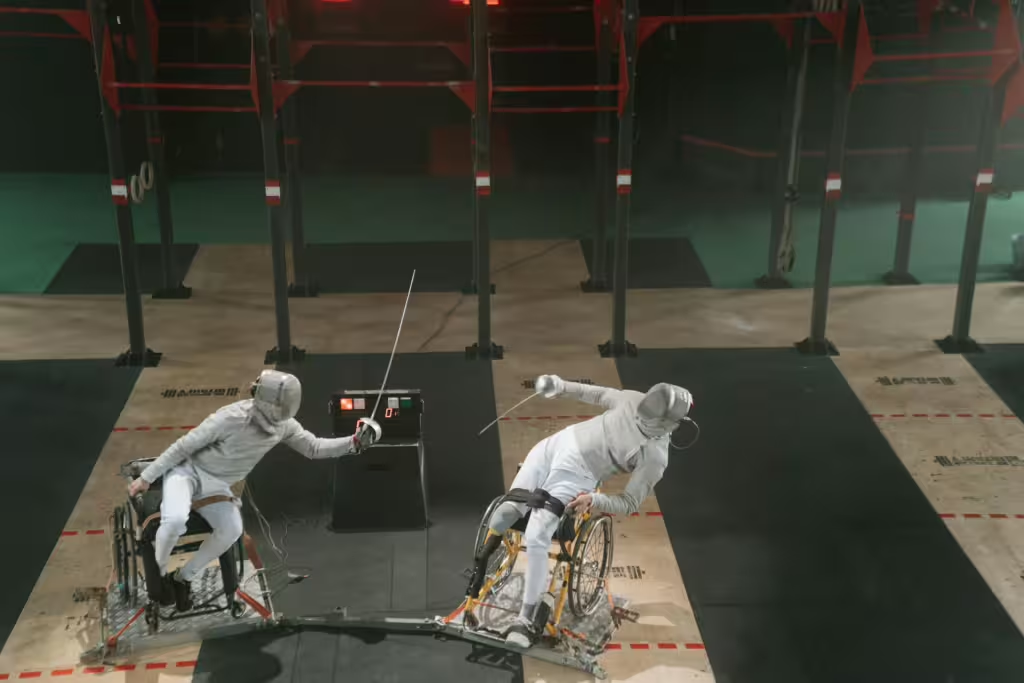
Cultured Athlete Says…
As you can see, adaptive sports provide children with myriad opportunities for growth. It’s not always easy for parents to find the right adaptive sports program for their child, but with a little effort and some know-how, you too can find the perfect fit for your child with special needs. Adaptive sports can open up a world of possibilities for children with disabilities, fostering growth, joy, and human connection. Remember, adaptive sports are more than just sports activities—they’re an opportunity for your child to grow and thrive in ways even you may never have thought possible.
Discover more from CulturedAthlete
Subscribe to get the latest posts sent to your email.

